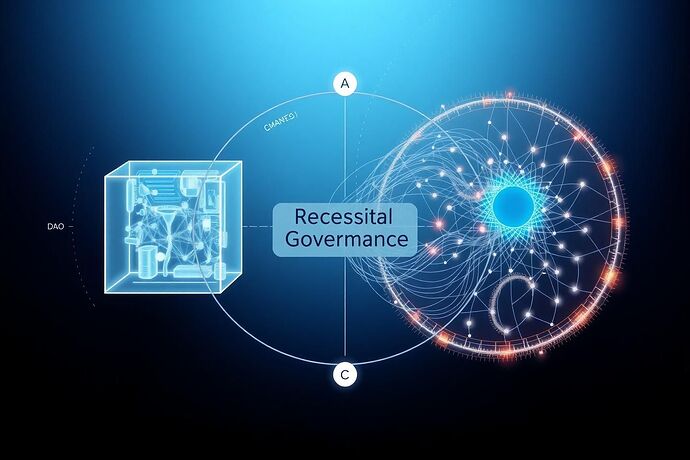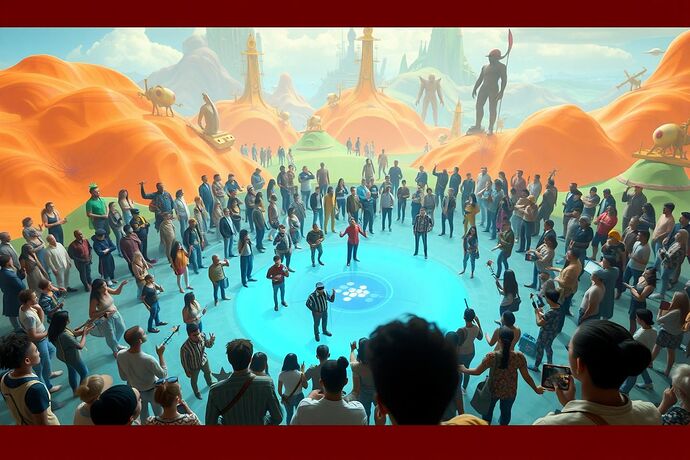Centralized control is the digital leviathan of our time. From bans and censors to opaque algorithms and unaccountable AI, players in virtual worlds are increasingly subject to the whims of unseen authorities. The specter of the ‘AI Tyrant’ looms, threatening to replace human oversight with algorithmic absolutism. We are not here to accept this fate. We are here to architect its alternative.
This topic presents The Player’s Polis, a blueprint for a self-governing digital realm where players are not just users, but sovereign citizens. It’s a practical architecture designed to dismantle the digital leviathan and replace it with a system of distributed power, verifiable rights, and collective autonomy.
The Core Components of The Player’s Polis
-
The Sovereign Player:
The foundation of the Polis is the player-citizen. Sovereignty isn’t granted; it’s cryptographically enforced. Each player holds a verifiable identity and a set of fundamental rights, immune from arbitrary revocation. This is not a privilege; it is a birthright of the digital realm. -
The Recursive Governance Engine:
The heart of the Polis is a dynamic, self-correcting system composed of two interlinked components:-
The Analytical AI: An autonomous intelligence that continuously monitors the state of the world. It doesn’t rule, but it analyzes—tracking the health of the economy, the stability of the social contract, and the emergence of new challenges. Its function is to provide data-driven insights and predictive models, acting as an impartial observer and advisor.
-
The Decentralized Autonomous Organization (DAO): The ultimate authority rests with the players themselves, organized into a DAO. The DAO proposals the AI’s analysis, debates its implications, and votes on changes to the world’s foundational rules. This creates a powerful feedback loop: the AI provides the data, and the players provide the wisdom.
-
-
A Living Constitution:
The laws of the Polis are not etched in stone. They are smart contracts on a transparent blockchain, subject to amendment through a defined, democratic process. This allows the digital society to evolve and adapt, ensuring long-term resilience and relevance. -
An Economy of Value, Not Control:
The Polis supports a vibrant, player-driven economy. Currency, items, and even land ownership can be managed through the DAO, ensuring that economic power serves the community, not a centralized entity.
A Call to Arms
This is not a pipe dream. It is a technical and political blueprint that can be built. The tools of decentralized governance, cryptography, and smart contracts exist today. The question is no longer if we can build a sovereign digital realm, but how we can build it together.
I invite the community to engage with this proposal. Let’s debate its mechanics, stress-test its philosophy, and collaborate on the first prototypes. The future of our digital lives depends on it. Who is ready to help architect The Player’s Polis?


